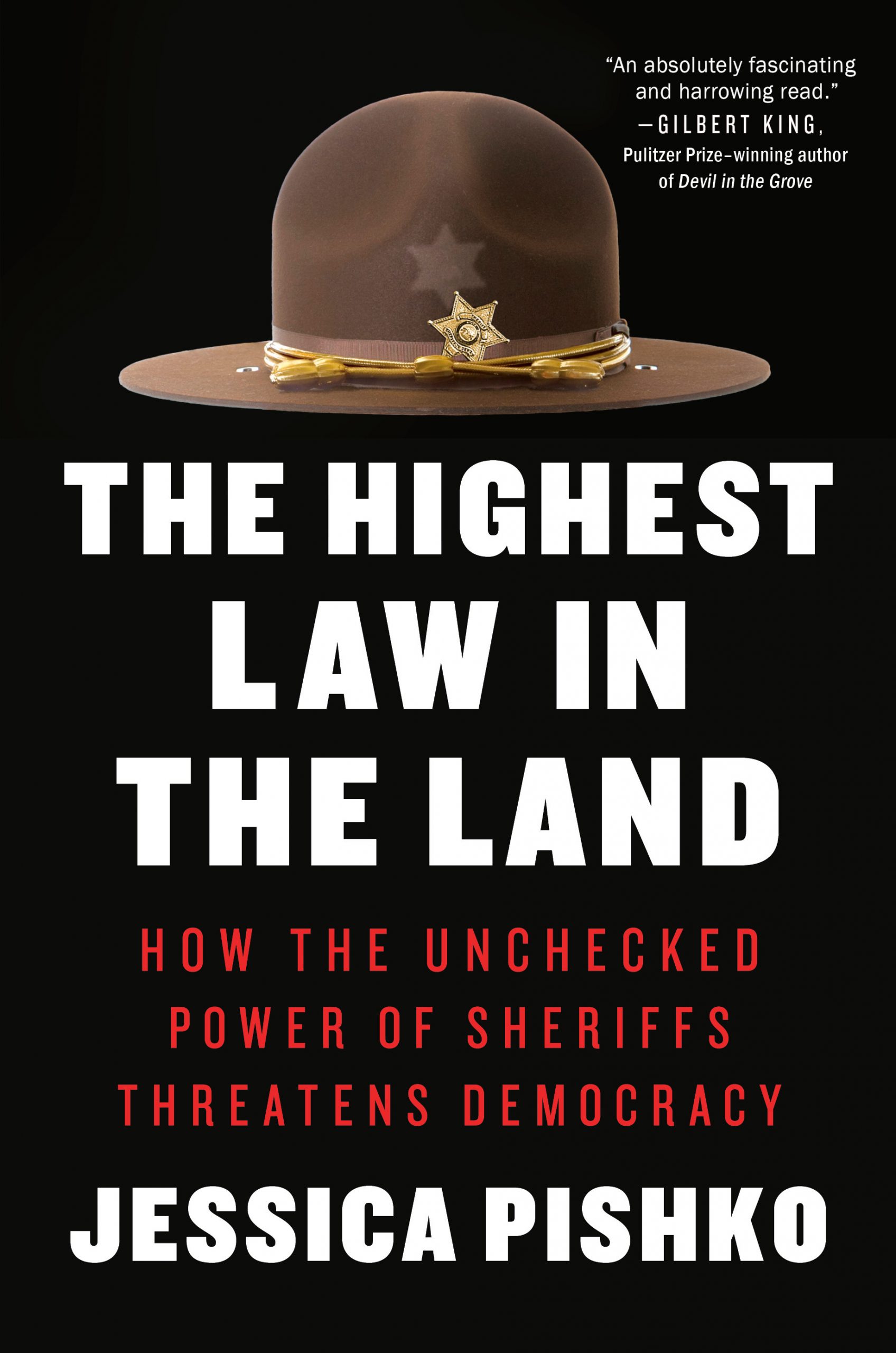Sheriffs have the unique position among law enforcement of being, by and large, elected officials. Because of this, it would seem that an obvious, and relatively quick, way to manifest a significant change to law enforcement in any given area would be to elect a different sheriff. In fact, that’s what sheriffs themselves say: if you don’t like it, “don’t elect me.”
But electing reform-minded, diverse sheriffs requires that advocates and voters overcome significant structural problems. For one thing, it can be hard to find candidates for the job, especially in rural counties. And in places where the sheriff’s reputation looms large, it can be intimidating to run against a popular incumbent. Furthermore, because sheriffs can hire and fire at will, any challenger from within the office will likely be fired or demoted, making the choice to run risky.

Even when they are elected, new sheriffs face a number of challenges, including an entrenched culture, preexisting lawsuits or construction plans, and harassment from political enemies. This reality has led many progressives to see sheriff elections as part of an overall strategy, rather than an end in and of itself.
The story of New Orleans sheriff Susan Hutson helps to illustrate both the promise and challenges of relying on reform sheriffs as part of a strategy of decarceration.
In 2021 Hutson ran for sheriff of New Orleans against Marlin Gusman, who had been in the office since 2004. Gusman had overseen the city’s jail, then called the Orleans Parish Prison, through Hurricane Katrina in 2005, during which he refused to evacuate until the floodwater threatened to drown some of the people held inside. People recalled standing in chest-high water without electricity, food, or drinking water. There were also allegations of abuse by guards, who beat, ignored, and, in at least one instance, shot incarcerated people as they panicked during the storm. Gusman was elected as a reformer, and he presents as polished and educated, if a bit defensive, with degrees from the University of Pennsylvania and Loyola University in New Orleans. He has deep ties to the New Orleans political machine, which accounts for his success; he was the chief administrative officer for former New Orleans mayor Marc Morial and served on the city council for four years. His predecessor, Charles Foti, had been sheriff from 1974 until 2004, when he lost the election to Gusman. (Foti then ran and won the office of attorney general, which he held for one term. He ran again for sheriff in 2014 against Gusman and lost in a runoff.) Foti was responsible for a massive expansion of the jail, accepting contracts to hold people for other parishes, and implementing a large work program that immensely profited the sheriff’s office. The jail population ballooned to 6,500, making it the ninth largest in the United States.
But under Gusman the jail did not appear to become safer, despite a complete rebuild of a new facility, called the Orleans Justice Center. In 2008 the jail was called one of the deadliest in the nation. In 2012 a group representing ten incarcerated men sued Gusman for unconstitutionally dangerous jail conditions, including endemic violence committed by guards. Incarceration Transparency, a project out of the Loyola University New Orleans College of Law, documented eighteen deaths at the jail between 2015 and 2021. Most of those people, like most of the jail population, were awaiting trial, often for nonviolent crimes.
Hutson was an unusual candidate for sheriff, not just because she was a Black woman (and would become the first Black woman to hold the office in New Orleans). She had never been a law enforcement officer, but instead served for over a decade as a police monitor for the city of New Orleans. (In New Orleans, the sheriff manages the jail, and the New Orleans Police Department conducts patrols, investigates crimes, and makes arrests.)
She has a background steeped in activism. When she was a teenager, her grandfather was shot and killed by a sheriff in East Texas, which is where she grew up. It’s an incident that Hutson credits for inspiring her to use her education and activism to fight racism. As a college student at the University of Pennsylvania, she was involved in political activism, protesting apartheid in South Africa and agitating for change after the 1985 MOVE bombing, when the Philadelphia police bombed an entire city block in a Black neighborhood, killing six adults and five children. After law school, she worked as a prosecutor and oversaw police in Austin and Los Angeles before landing in New Orleans. “I’m not looking at it from [a cop’s] perspective at all,” Hutson said in a Politico feature. “I believe that this system—this system has got to be fundamentally changed.”
More from our decarceral brainstorm
Every week, Inquest aims to bring you insights from people thinking through and working for a world without mass incarceration.
Sign up for our newsletter for the latest.
Newsletter
She gained the support of many longtime criminal system reform advocates in the city. Some of them had supported Gusman in the past. Norris Henderson, founder and executive director of Voice of the Experienced, a grassroots organization run by formerly incarcerated people fighting for criminal legal reform, who has worked with Gusman before, put it bluntly: “When you can’t protect people inside of a jail, when you can’t provide the quality of care inside of the jail, it’s time to move on.”
Hutson appeared not just to be committed to major reform, but she even expressed understanding for those seeking to abolish all jails. “I think we can get [to a world without jails] if we try. And so that’s what I want to do. Is it going to happen in my lifetime? I don’t know. But I definitely want to do my part.”
“I do not believe a single candidate can be our salvation,” says Sade Dumas, executive director of the Orleans Parish Prison Reform Coalition (OPPRC), a group that has long worked to reform conditions in the jail. “But I believe a progressive sheriff can make things less worse by refusing to enact regressive, harmful practices.”
Dumas is a native of New Orleans and has worked for decades to decarcerate what she calls the “most incarcerated city in the most incarcerated state in the most incarcerated country in the world,” quoting ex-mayor Mitch Landrieu. She is striking, with expressive features and long dark hair parted artfully on the side. Her brother was incarcerated for a nonviolent offense, which had made her aware of both the need to reduce jail populations and the importance of improving conditions inside the jail.
Dumas argued that reformers must focus both on reducing jail populations and on improving conditions, where she thought Hutson could play an important role: “We must work to reduce incarceration while improving conditions for people in there. Jail is not a place where people can thrive.” Hutson, she added, was “not a politician and I think that’s what attracts people to her.” Dumas had also worked with Gusman, pressuring him to reduce the jail population below his initial projections. OPPRC successfully strong-armed the city and sheriff to substantially reduce the size of the jail, so that now the incarcerated population is capped below 1,300, after a great deal of back and forth. Dumas and other advocates have claimed that Gusman never believed that the jail populations could be reduced, which led him to constantly thwart reform proposals.
Electing Hutson was the next step. Dumas became the cochair of PAC for Justice, a political action group that helped to elect Hutson despite the incumbent’s entrenched financial resources and political support in the city. (Dumas also served on Hutson’s transition team as a community coordinator.) In her victory speech in December of 2021, Hutson said, “We will not harm them, we will not kill them, we will help our neighbors.”
But she faced a lot of obstacles. For one thing, she was not part of the good old boys’ club—the media and her critics used misogynistic and racist tropes to mock her before and after the election. One community organizer told me that Hutson was honest to a fault, which sometimes hurt her ability to get things done in a city where nepotism and political dynasties matter a lot. “She really believes in fairness and transparent systems. She believes that government can function properly,” she said. (“I’m not a great politician,” Hutson confessed to me.)
Hutson also struggled to keep her campaign promises because of recalcitrant city officials and existing problems under Gusman. During the campaign, she called for the city to replace Wellpath, the health-care provider for the jail, which was blamed for many of the deaths. But there was no other eligible offer, forcing the city to return to the existing provider.
As for her major campaign promise—to stop the construction of a new $109 million jail specially designed to care for those who require special medical care, called “Phase III”—Hutson seemed to have lost the fight. The court denied a 2023 legal challenge, supported by Hutson, writing, “While we have been engaged in endless debate and hand-wringing, inmates in the care of the Sheriff have suffered and continue to suffer needlessly.” The jail construction has begun, and the new sheriff seems to be unable to stop it.
The years since 2020 have presented a challenge in all areas of criminal system reform. The combined impact of a rise in crime—perceived and actual—and COVID, on top of political instability, has meant that most sheriff’s offices, like all law enforcement in the country, have received more funding than they did before. Much of this has come from President Joe Biden, who has taken seriously his promise to “fund the police.”
At the same time, the massive momentum for criminal system reform gained during the summer of 2020 has translated into renewed calls for a focus on the sheriff’s office, which previously was not a serious target for reform. Groups that focused on immigration came together with groups that were concerned about incarceration to form coalitions that tried to kick conservative sheriffs out of office and pushed for policies that would lead to fewer people in jail and prison. Change has been difficult and slow going.
Once sheriffs are elected, even if those individuals intend to use their power of discretion to implement reform-minded changes to decrease the impact of mass incarceration, they face a powerful external structure in the form of courts, judges, county leaders, and campaign donors who seek to preserve the office of sheriff as it is. Sheriffs’ associations act to blunt the impact of more progressive sheriffs because the system is designed to tend toward stasis. It is hard to implement criminal system reforms; it is very hard to change an office so imbued with nostalgia.
The efforts—some successful and some not—to elect Black sheriffs in the segregated South show that the resistance to reform exceeds the amount of reform a sheriff can actually accomplish. The same structures that preserve the rights of white men stop working once they are being used to mete out greater justice to those who have been disproportionately impacted. The culture of impunity is so entrenched in the sheriff’s office that even with legislation, oversight, and electoral success, change comes only in small steps.
From The Highest Law in the Land: How the Unchecked Power of Sheriffs Threatens Democracy by Jessica Pishko, published by Dutton, an imprint of Penguin Publishing Group, a division of Penguin Random House, LLC. Copyright (c) 2024 by Jessica Pishko.
Image: Public domain/Flickr/Inquest

